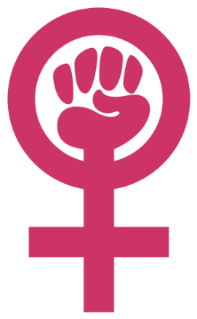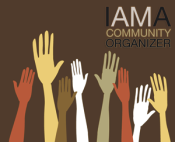As opposed to asking, "are we racist," a question more easily answered in a manner that creates general agreement is the question, "Does Chen Juan's statement in the above quotation show evidence that she is aroused by skin color to experience ideation, emotion and engage in behavior based on the color that significantly impairs her in one or more areas of life?" Chen Juan says quite frankly that she experiences color-aroused ideation, emotion and behavior. She says she would make significant decisions on the basis of color, even if these decisions limited her financial attainment.Chen Juan, 27, a secretary in an English training school in Beijing, regularly uses skin-whitening products and carries an umbrella on summer days. "For me, the whiter, the better. Being white means pretty," she said. "If someone looks too black, I feel they look countrified and like a farmer. . . . Being white is prettier than being black."
"In my impression, black people, especially Africans, are not clean enough," Chen continued. "To be frank, I just feel black people are too black. Definitely, I wouldn't consider having a black guy as my boyfriend even if he were rich."
( . . . )
Some here say Obama's presidency is causing a major shift in attitudes. Others, however, say many Chinese rationalize his election as a fluke of the American system or suggest that Obama, whose mother was white, isn't "really" black.
"It will be really interesting to see what happens when he comes to visit, because I really think the Chinese have a hard time with it," said Hung. "Nobody has dealt with this question of what this means to our sense of race. It's a kind of self-examination that Chinese -- including myself -- need to go through. Are we racist?" WaPost
As such, she has acknowledged that she really should be screened for Extreme Color-Aroused Disorder, which is an illness in which the perception of the skin color of oneself and/or others arouses ideation, emotion and behavior that causes significant impairment in one or more areas of life, including dating and marriage. The inability to marry someone who would otherwise be appropriate based on the skin color of oneself and the other is an impairment that, in some cases, may cause some people to live alone, not get married, not have children, fail to obtain financial goals which would otherwise be attainable ("I would not marry a wealthy Black man") and be therefore be generally unsatisfied with life based on a behavioral decision that was evoked by skin color aroused ideation and emotion. Although this does not happen in every case, extreme color-aroused disorder constitutes a mental illness in cases where color arousal it causes extreme impairment in one or more areas of life.
Chen Juan says that when she perceives people with brown or black skin, the ideation arises in her that the people are "countrified", which to her is negative. She feels emotional animus toward their skin color (and also toward her own skin color, prompting her to use whitening cream). She says her ideation includes the thought that the color "white is prettier than black." (Many in the United States will defend this ideation as a preference for what they know best, but that doesn't change the reality that skin color is the cue that evokes in such people a sense of revulsion or displeasure, which means that they are, to some degree, color-aroused.)
Chen Juan says that when she perceives, in particular, brown people from Africa, she experiences the ideation that they are "not clean enough." Regardless of whether African dark brown people are clean enough or not, Chen Juan is experiencing an ideation and revulsion that are aroused by the perception of the color of others.
The next crucial question is whether Chen Juan engages in behavior that is aroused by her color-aroused ideation and emotion. The behavioral aspect of color-aroused disorder is crucial since the desire to attack someone based on their skin color may not become a criminal case absent the inability or unwillingness to control the urge to attack someone based on their skin color. It is the color-aroused behavior, legal or illegal, that turns the underlying ideation and emotion into a cognitive behavioral challenge. Chen Jun acknowledges that she does engage in color-aroused behavior.
"I wouldn't consider having a black guy as my boyfriend even if he were rich."Chen Juan acknowledges that, upon perceiving her own and another's skin color could, she would make a decision about a potential romance with that person, on that basis alone, even where the color-aroused decision could negatively effect her economic status. She would refuse to marry a man whose skin were brown and would marry a lighter skinned man of lesser financial attainment, even if making the decision in this way led to a lower economic attainment for her.
Chen Juan "regularly uses skin-whitening products and carries an umbrella on summer days."
Is Chen Juan racist?
Is Chen Juan "racist"? Whether her color-aroused ideation emotion and behavior include the anachronistic and unscientific belief that there are "sub-races" within the human species, and that these can be distinguished by their skin color (whether she is a "racist") is merely one of many ideational questions that would need to be explored in order for cognitive behavioral therapy to help her to confront the beliefs that guide her emotions and effect her behaviors, toward herself and others, in ways that could impair her self-esteem and functioning.
If Chen Juan rejected a potentially lucrative Black client, with color-aroused ideation and emotion leading to this color aroused self-destructive behavior, this would indicate that Extreme Color Aroused Disorder was impairing her functioning in a significant area of her life -her employment and financial prospects.According to the U.S. Department of Energy Office of Science, Office of Biological and Environmental Research, Human Genome Program:
"DNA studies do not indicate that separate classifiable subspecies (races) exist within modern humans. While different genes for physical traits such as skin and hair color can be identified between individuals, no consistent patterns of genes across the human genome exist to distinguish one race from another. There also is no genetic basis for divisions of human ethnicity. People who have lived in the same geographic region for many generations may have some alleles in common, but no allele will be found in all members of one population and in no members of any other."In other words, the Human Genome Project has proven that, as a matter of scientific fact, that which we call "race" does not exist as a matter of biology, and so all references to "race" are references to a fallacy. Francis L. Holland, The American Journal of Color Arousal
Likewise, if she remained unmarried and unsatisfied after rejecting marriage to a brown-skinned man based on ideation aroused by his skin color and hers, this would again indicate that Extreme Color Aroused Disorder was impairing her functioning in a significant area of her life - romantic relationships and marriage.
Most interesting in the case of Chen Juan is that she is acutely aware of her own skin color and does not like the skin color that she has. This is why Extreme Color Aroused Disorder is not merely a disorder of ideation aroused by others' skin color, but also a disorder of ideation, emotion and behavior aroused by one's own skin color. Chen Juan reports that, like the late Michael Jackson, she uses skin lightening creams, which means that her perception of color effects not only her reaction to others, but also her own sense of self-worth and "prettiness."
Aroused by ideation that brown skin is lowly, associating brown skin with various devalued societal characteristics, she dislikes her own skin almost as much as she dislikes the skin color of people browner than herself. This ideation and emotion leads her to engage in the color-aroused behavior of spending money, time and effort trying to lighten her own skin, as Michael Jackson did. As such, she should be evaluated for Extreme Color-Aroused Disorder (ECAD) because her ideation and emotion aroused by her own skin color are hurting her self-esteem. She needs to be screened and evaluated for Extreme Color-Aroused Disorder so that she can receive such help as she may need.
I urge readers with comments and additional observations to share them with us at the Francis L. Holland Blog, where the general public, of various skin colors, can benefit from our conversation.
4 comments::
-
I would guess that skin color itself in China is important, perhaps in the same way, or similar way that it is in Brazil. Because skin color ranges widely in Asia, from very light to very dark, and everything in between.
I think I did read somewhere that darker skin did seem to mean people who were farmers, but in big cities, there are people from everywhere, it seems.
If I remember correctly, China and other communist nations used the US treatment of Blacks as an example of how the US is evil, corrupt and a colonizer, I am pretty sure that this was promoted in China during the Vietnam War, so if anything, I would guess there is a lot of confusion.
The only thing I saw before the Olympics was where the poor housing was just getting, ahh, how do I describe this? Well, instead of tearing down the poor people's homes, they were just barricading them in so no one could see them or how they lived.
I really don't remember anything about Black people being in issue before the Olympics, but I am no expert.
I met a woman walking down the street in Chengdu, we did the eye flick thing I guess, I thought she was an American, but she was actually from France, she was there to study language, nobody even paid attention to us, although any person can be subject to staring or whatever, at least, that was my experience. Not to say that this article is wrong, but I do think it;s pretty complicated to figure out, at least, for me, anyways. -
Kathy, thanks for your observations based on personal experience. What's "the eye flick thing"?
-
eye flick, well, i guess that is the flicker in our eyes, of recognition, in a sea of people, that we share something in common, we "recognize" each other, our eyes meet and we stop walking and start talking mid-sentence, "recognition" is the best I can come up with in english. oh, how else can i explain this?
-
I was walking with a white-skinned friend in Providence, Rhode Island when I saw a Black man. I nodded to him and said, "What's up?" and then my friends and I continued walking.
My white friend asked me if I knew the Black man and I informed him that I didn't. But, effectively, we are all part of a club and we recognize each other partly by the color of each other's skin, and then by the nod of recognition.
People watching think that we must know each other, but we don't. We know only that we are part of the same international political group, determined for us and obligatorily accepted by us, determined by our skin color. Even in the midst of hundreds of whites, we know that we are not entirely alone, because we nod out of recognition and the one or a few other Black men (or women) present nod back.



No comments:
Post a Comment